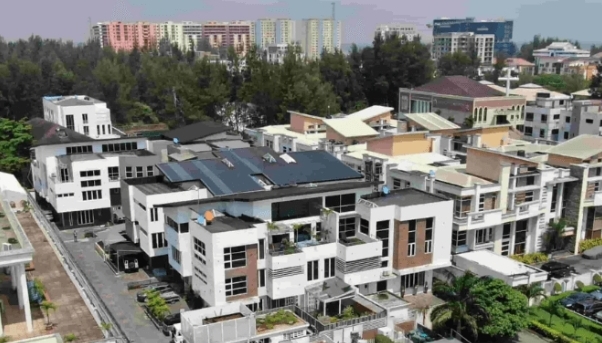S/Africa’s capital in Nigeria’s real estate market shrinks 52% | Prestige Real Estate News

Over the past 10 years, the volume of secondary market capital coming from South African institutional investors into Nigeria’s real estate market has shrunk by 52%, from $300 million to $145 million, a new report has shown.
This implies that the country, once the anchor for acquisition activity, is no longer the primary source of secondary market capital, and so, the influence of its capital in Nigeria’s market has waned.
Before now, South African firms took the Nigerian real estate market by storm, focusing mainly on the retail space, which, at a time, witnessed what was clearly a revolution, creating jobs and contributing significantly to economic growth.
During this period, Resilient Africa, for instance, announced that it was set to invest $271million in developing shopping malls in second-tier cities across Nigeria. Eddie McDonald, chief executive of the group, at the time, listed these cities as Owerri, Asaba, Delta, Onitsha, among others.
The company, which was created through a joint venture with Resilient Properties – a leading South African REIT – Shoprite and Standard Bank, wanted to establish a strong foothold in cities where little or no formal retail existed.
“Within this group, all projects saw Standard Bank acting as the financier, Shoprite the main anchor tenant, and Resilient as the developer,” McDonald told newsmen in Lagos.
Dolapo Omidire, founder/research director at Estate Intel, explained in the new report entitled ‘Nigeria Real Estate Capital Trends Report 2025,’ that the drop in the volume of the capital stems from exits by South African investors.
“These investors are those who have chosen to exit sub-Saharan Africa to focus on their home market. Since then, other investors from the United Kingdom, Nigeria, United States of America and Mauritius have kept the activity going,” Omidire explained further.
He noted that the investors, now opening up the secondary market in Nigeria, are newly established income funds, development finance institutions, and corporates/owner-occupiers.
He cited YatStar Capital, which, he recalled, acquired Rising Sun, the mixed-use British American Tobacco headquarters, in a landmark sale and leaseback transaction that was concluded in December 2024.
Another major development in this space, according to the new report, is that rising building costs are giving non-residential brownfield projects or renovations a boost
“This non-exhaustive graphic illustrates the growing interest in brownfield development activity, especially through light renovations or redevelopments of existing properties,” he said.
“From a handful of large-scale projects documented between 2009 and 2015, the frequency of completions every 5 years in this space has grown 2-3x over the past 15 years.”
According to him, greenfield investors are increasingly exploring opportunities with existing or abandoned properties. In many instances, these properties allow them to meet their commercial real estate investment objectives at a lower price.
An instance of such properties is the iconic IMB Plaza, which was acquired and renovated to become number one, currently achieving a 70%occupancy rate with B Grade + rents and occupiers, including AWS.
Another instance is the Victoria Tower in Ikeja, which was abandoned for almost 20 years. It was acquired and will now be completed as The Phoenix with international occupiers such as Tetra Pak and Biersdorf.
Over all, the report notes that, as Nigeria eases into a new era of economic stability, the real estate market is responding positively with record levels of commercial property acquisition activity.
But Omidire is cautiously optimistic, saying that, akin to other African markets where elections can often be disruptive, the market will typically see activity slow down and cool off in the months before the election, as investors adopt a wait-and-see approach.
“As such, the momentum we are gaining with real estate capital market activity may be briefly put on ice around Q4:2026 as the March 2027 elections approach. For investors with a medium to long-term horizon, the current market represents a good opportunity to secure high-quality assets at attractive entry pricing,” he advised.
– BusinessDay






